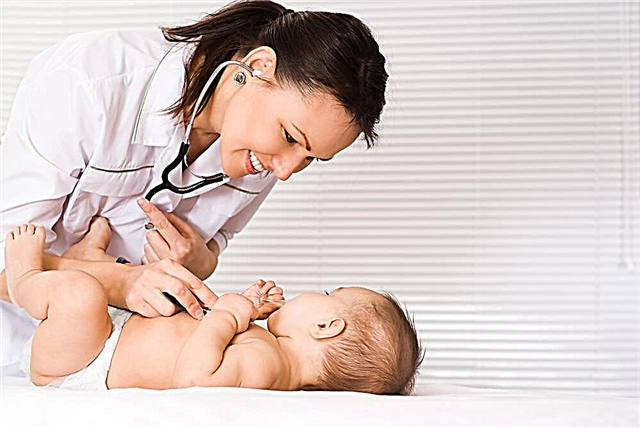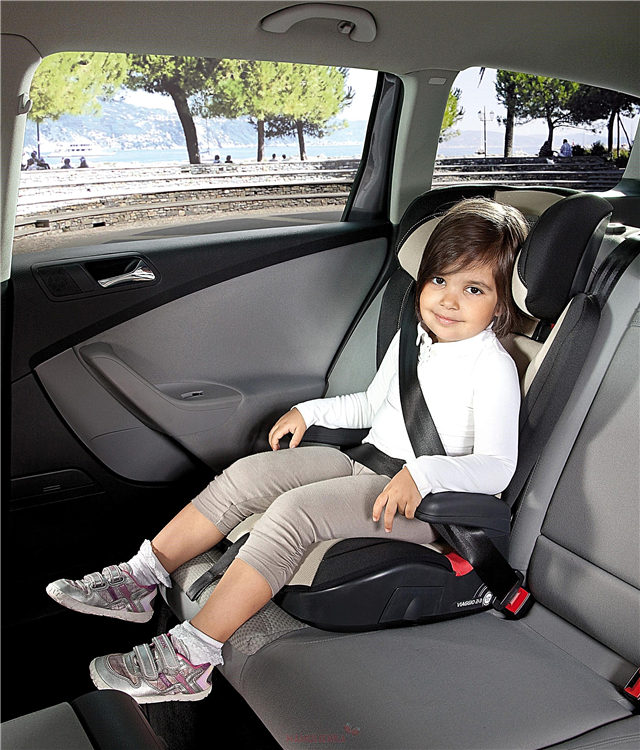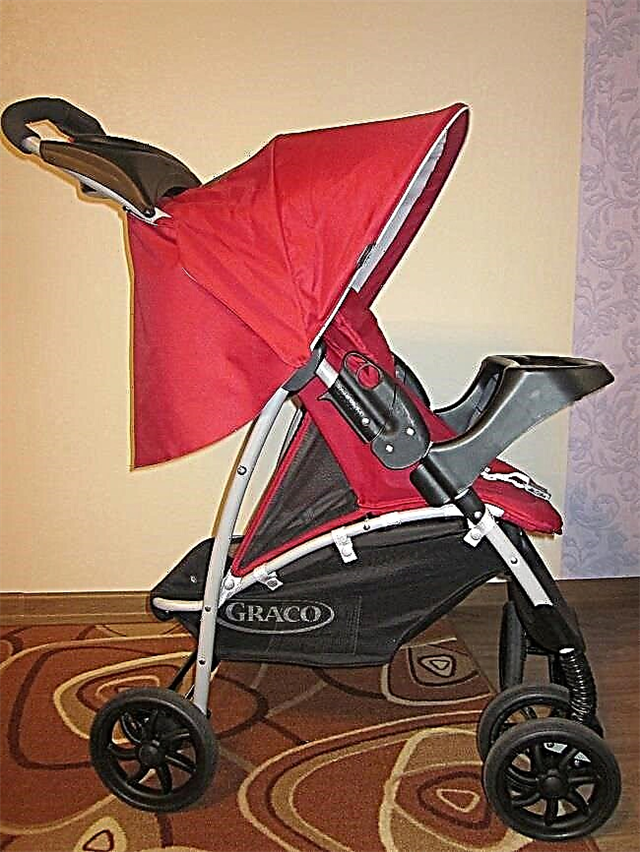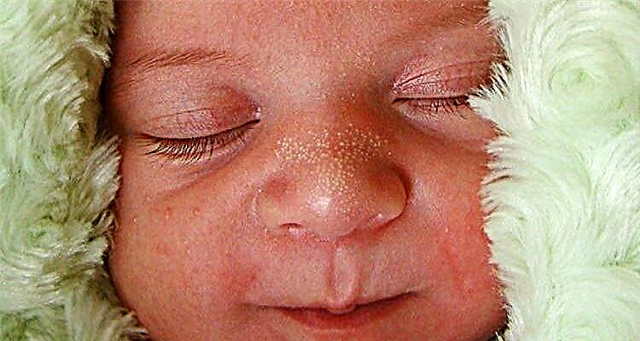Every mother worries about the well-being of her child. The state of health can be judged by many factors, one of which is stool. Diarrhea in newborns is not uncommon due to various factors. The main thing is to recognize the signs in time and prescribe adequate therapy, because sometimes more serious violations are hidden behind this condition. In this regard, each parent should know what causes the baby to have diarrhea.

Diarrhea in a newborn is an extremely unpleasant phenomenon
Diarrhea in babies
Diarrhea, or diarrhea - loose stools that occur more often than 2 times a day. Diarrhea is not a disease, just a sign of some other more serious pathology. Doctors distinguish 6 main types of diarrhea:
- Alimentary diarrhea. The reason for the appearance of this condition is associated with an improper diet of the child, as well as with allergic reactions to medicines or any foods.
- Infectious diarrhea. The etiology of diarrhea is associated with infectious diseases, for example, dysentery, salmonellosis, toxic infection, etc.
- Toxic diarrhea. It occurs, as a rule, when the body is poisoned with inorganic substances (arsenic, mercury, etc.).
- Dyspeptic diarrhea. The reason for its occurrence is the insufficient production of certain enzymes by the baby's body.
- Drug-induced diarrhea. It is diagnosed in a child after taking certain medications (these are antibiotics, sulfonamides, nitrofurans) that affect the intestinal flora.
- Non-malignant diarrhea. The cause of its occurrence is the problematic regulation of intestinal motor activity. That is, diarrhea in this case can occur due to fear or intense excitement.

Because of what diarrhea in a baby, only an experienced pediatrician can say for sure
Diarrhea in babies is a common, very dangerous phenomenon. With this pathology, the body of the crumbs loses a lot of fluid and nutrients. This is fraught with dehydration. In this case, the child's eyes may sink, the mucous membranes dry out, and the lips may crack. The color of urine may also change: it will turn dark yellow, its amount will significantly decrease. In addition to dehydration, vomiting (a concomitant symptom of diarrhea) is also dangerous for a baby, since, being constantly in a supine position, the baby can choke on its vomit.
The mechanism of development of diarrhea
Intestinal epithelial cells produce special mucus, which contains mucopolysaccharides. They protect the intestinal mucosa from the effects of pathogenic microbes on it. Infectious agents destroy the structure of epithelial cells, so they become more vulnerable. To restore normal functioning of the gastrointestinal canal, the child's body begins to produce more fluid, which helps to remove toxins from the body.
Important! All signs of onset diarrhea can only be known by a pediatrician. Only he can distinguish diarrhea from the normal physiological stool of a baby with a 100% probability.
Symptoms of diarrhea in newborns
When changing a diaper, you need to pay attention to its contents. The nature of the bowel movements can tell a lot about the baby's health. Symptoms of diarrhea in infants can be different:
- Foam, blood in the stool is a key sign of the development of infection in the body. Additional symptoms in this case include redness of the skin, abdominal pain, fever and vomiting.
- Private bowel movements with white blotches, undigested food pieces may indicate that the child is overeating.
- Discolored and structured diarrhea following feeding may be a reaction to complementary foods.
- Diarrhea with foam and mucus is indicative of an allergic component. Skin rashes are possible.
- Defecation with foamy contents occurs when infected with staphylococcal enterocolitis.
- Feces of a changed consistency, but without pathological impurities, indicates teething. An increase in body temperature up to 38 ° C, hypersalivation and swelling of the gums are possible.
- Liquid stool, in which mucus, foam and blood streaks are detected, may indicate the development of dysbiosis, which is caused by antibiotic therapy.

Clinical examination of the child
Which stool is abnormal
In the first days of life after the birth of a child, meconium (original feces) leaves the intestines. This substance has a viscous consistency. If meconium still continues to come out on the 3rd day, the pediatrician should be told about this, as this may be a sign of intestinal atresia - an abnormal development of one or several sections of the intestinal tube. Against the background of this pathology, intestinal obstruction develops.
Under normal conditions, the stool has a mushy yellow consistency. In the early stages of postembional development, the immature digestive system does not always fully cope with its functions, therefore, there may be small curdled inclusions and clots of transparent mucus in the feces.
Another indicator of the normal functioning of the digestive system is the frequency of bowel movements. On HB, the baby can poop after each feeding and even sometimes in the process. This is absolutely normal, due to two factors: firstly, the intestines of the newborn are not yet fully formed, and secondly, the sucking process itself slightly relaxes.
Artificial feeding inevitably affects the structure of feces. The feces become darker, brownish or greenish inclusions may be found in it. This is due to the fact that iron is often added to the mixture, this helps to avoid anemia in newborns.
How to recognize diarrhea
The following symptoms will help to establish diarrhea in a baby:
- deterioration or lack of appetite;
- increased frequency of bowel movements;
- the appearance in the feces of impurities of blood, mucus, foam and water;
- increased gas formation;
- colic;
- the appearance of a putrid smell of feces;
- weight loss;
- temperature rise.

Obstructive diarrhea is characterized by loose stools with mucus.
Causes of diarrhea in an infant
Diarrhea in a newborn can occur for various reasons. This condition is not always associated with an infection. Most often, diarrhea in infants is triggered by physiological changes in their body.
If the baby begins to defecate with watery stools without accompanying symptoms, then you need to think about the etiology of this condition. There are many reasons for diarrhea. The main ones will be presented below.

The child does not need to be overfeeded, as this can provoke the development of many undesirable phenomena
Power supply errors
Infants may have an intolerance to certain foods or their components, as a result of which bowel disorders in the form of diarrhea are observed. This intolerance concerns the nutrition of a nursing mother. Very often there is intolerance to cow's milk proteins, as well as gluten - a protein that is part of cereals. The constant use of such products by the mother leads to prolonged diarrhea in the child, the results are weight loss, allergic manifestations, flatulence, abdominal pain and, accordingly, general anxiety.
Note. This condition, as a rule, does not require any special therapy. When the product is excluded from the diet, all manifestations disappear. But determining which food is causing gut dysfunction is difficult.
Frequent breast changes during feeding lead to the fact that the baby sucks only the front milk, not reaching the rear. In the absence of hind milk supply, the fore milk cannot be digested normally, since it is in the hind milk that lactulose is contained - a special enzyme for the digestion of milk sugar. As a result, foremilk travels too quickly through the gastrointestinal canal and is not digested properly, which causes pronounced loose and greenish stools.
Infection
The etiology of diarrhea is often associated with an infectious component. In such cases, diarrhea usually begins abruptly, pronounced abdominal pain, fever, and vomiting, usually repeated, join. Green diarrhea may appear in a newborn with blood streaks, as well as mucus and foam. In this case, it is better to hospitalize the child.
Infectious diseases of newborn children have a particularly severe course. Any delay or assistance in an insufficiently professional form is fraught with fatal consequences or at least getting into intensive care. There are a lot of bacterial and viral infections that affect children's intestines. Rotavirus infection is one of the most common.

It is very difficult to identify mixed type of diarrhea
Dysbacteriosis while taking antibiotics
Often, after antibiotic therapy, the baby has diarrhea. Antibacterial drugs do not possess quantitative and qualitative selectivity of action. They destroy not only pathogenic, but also beneficial microorganisms. As a result, dysbiosis occurs. To restore normal bowel function, doctors prescribe pro, - and prebiotics: Bifidumbacterin, Linex, Acipol.
Acute surgical pathology
Frequent stools can be a symptom of appendicitis. In children, not only of the newborn period, inflammation of appendicitis is accompanied by symptoms from the gastrointestinal tract.
What to do for parents with diarrhea in a baby
Each mother should clearly know what her baby may have diarrhea from, and what needs to be done in this situation. After each bowel movement, the mother should wash the baby well. Doctors in this case do not recommend using wet wipes, as they can provoke the development of allergies in the baby. Drug therapy is prescribed to a child only after a doctor has diagnosed it.
First aid for diarrhea in a child
If the child is diarrhea without vomiting, then the young mother should try to stop the diarrhea by latching the baby to the breast as often as possible. The fact is that in this way the baby will be able to receive both drink and food. Pediatricians with diarrhea are allowed to give babies Smecta or Enterosgel. The mixture should be given in small portions every 15-20 minutes. You can also use chamomile tea. It has anti-inflammatory effects. At elevated temperatures, an antipyretic agent (Panadol, Nurofen) can be given before the arrival of the doctor.
When it is urgent to show the child to the doctor
If diarrhea in infants during breastfeeding or artificial feeding is observed for more than two days, you need to consult a doctor. The pediatrician must be called in the following cases:
- fuse fontanelle;
- the child has diarrhea and vomiting;
- basal temperature - 38 ° С;
- the baby looks lethargic, apathetic, refuses to eat;
- the lips are dry, there are no tears when crying;
- there are streaks of blood and mucus in the stool.
What to give a baby with diarrhea
If a child has diarrhea and vomiting, then, most likely, he will need medication, but only a pediatrician should prescribe him. The following drugs are considered to be the best remedies for diarrhea:
- Enterofuril. Can be given to babies from 1 month old (contraindicated in premature babies). It is an excellent antimicrobial drug that quickly relieves diarrhea and other symptoms of intestinal infections.
- Loperamide. It stops diarrhea well, but this medicine can be used by children only from the age of two. Doctors do not recommend using this remedy for colitis and diarrhea with hyperthermia.
- Enterol. Assign to children from 1 year old. An excellent antimicrobial agent that has an antitoxic effect on the body.
- Phthalazol. It can be given to babies from two months. Has a wide range of effects. It is used for various intestinal infections, such as, for example, dysentery.
- Tannakp. Can be given to newborns. It is an antidiarrheal agent that has an astringent effect. Moreover, it still has an antispasmodic effect.
- Sulgin. Designed for babies from 6 months. This drug is excellent for diarrhea, as well as colitis and dysentery.
- Lactobacterin is a probiotic that can be used even by newborns. This drug can improve intestinal activity, metabolic processes, and also restore immunity.
- Hilak Forte - a medicine that copes well with diarrhea, and also regulates the intestinal microflora.
- Bifiform is an excellent source of B vitamins and probiotic microorganisms.
What is the danger of chronic or acute diarrhea
Diarrhea is a dangerous phenomenon for the baby's body. In acute and chronic diarrhea, the following consequences may occur:
- intoxication;
- dehydration;
- violation of the water-salt balance in the body;
- convulsions;
- cachexia (wasting);
- disruption of the cardiovascular system;
- muscle pain;
- development of dysbiosis;
- dysfunction of the neuroendocrine system;
- hypovitaminosis;
- prolapse of the rectum;
- decreased immune resistance of the body;
- cracks in the rectum.

Features of the structure of the intestine
Dehydration of the body with diarrhea
Dehydration is an extremely dangerous condition for a baby. To eliminate the consequences of dehydration, doctors prescribe a number of medications:
- Hydrovit;
- Humana Electrolyte;
- Tour;
- Oralite.
The dosage of solutions is calculated based on 100 ml per 1 kg of the child's body weight. You need to drink after each act of liquid bowel movements or vomiting. Doctors do not recommend using Rehydron for children under one year old, since the concentration of active substances in it is high for infancy. If there is nothing at hand, except for Regidron, before use it must be diluted in a double volume of water.
Children over 6 months old can be given dried fruit compote. If necessary, the child must be fed by force, from a pipette or from a syringe without a needle. Dehydration can worsen, then its consequences will be eliminated already in the hospital by means of droppers with glucose, which is much more painful for both the child and the parents.
Practicing doctors believe that children under one year old do not have stable immunity, therefore, a variety of factors influence the appearance of diarrhea. Any changes affect the state of feces: bronchitis, otitis media, nervous shock, overheating, hypothermia. Before treating any disease, you need to understand why it arose, that is, to determine its etiology. Only a qualified specialist can establish the exact cause of diarrhea. It is impossible to cure a child without a diagnosis.



